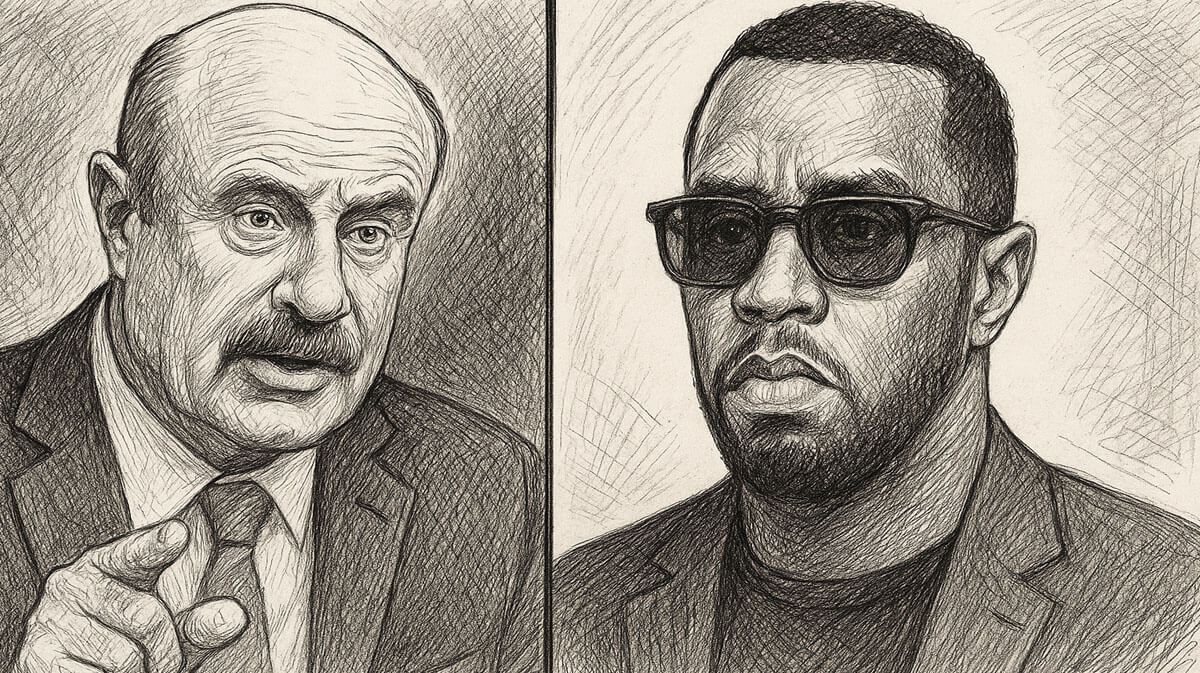As the trial of music mogul Sean "Diddy" Combs unfolds, with opening statements having commenced on Monday, the spotlight turns to the jury, its composition, and its potential biases. Dr. Phil McGraw, known to many as a television personality but also a former jury consultant, has raised concerns that the outcome may pivot less on the evidence presented and more on the psychological predispositions of the twelve jurors.
The case against Combs involves a 2016 incident captured on video where he is seen allegedly assaulting his then-girlfriend Cassandra Ventura in a hotel hallway. Although the footage is a central piece of evidence, and despite Ventura's testimony this past Tuesday, Dr. Phil has warned that the jury's interpretation of the evidence might be skewed by their inner beliefs and biases.
Dr. Phil's expertise as a jury consultant was honed at Courtroom Sciences, Inc., a company he founded before his rise to television fame. There, he specialized in advising attorneys on how to select jurors and frame their arguments for the greatest psychological impact, a craft that inspired the legal drama "Bull." Drawing from this background, Dr. Phil suggests the defense is targeting jurors with a robust "internal locus of control" — those who believe individuals are responsible for their own life events. Such jurors might be more inclined to sympathize with an argument that holds the women in the case as partly responsible for their involvement with Combs.
The defense's strategy, as articulated by attorney Teny Geragos, posits that the women, characterized as "adult, capable," must share in the responsibility of their choices to associate with Combs. This approach, according to Dr. Phil, does not need to sway the entire panel but simply needs to resonate with at least one juror to prevent a unanimous guilty verdict, potentially leading to a hung jury.
If the jury were to deadlock, the prosecution would face the prospect of a retrial, with the defense gaining an advantageous preview of all evidence and prosecutorial strategies. Notwithstanding his insights into jury psychology, Dr. Phil maintains a belief in the efficacy of the jury system, stating, "While no legal system is perfect, I believe that juries tend to get it right." He concludes by expressing trust in the legal process as the trial continues.
The case has garnered substantial attention, not least because of the celebrity status of the defendant. Combs' legal team's rhetoric, as highlighted in a tweet by Resist the Mainstream, underscores the contentious nature of the defense's argument. The tweet quotes the defense's portrayal of the alleged victims as "capable, strong, adult women," a framing that some might perceive as an attempt to shift some culpability onto them.
In the broader context of the legal system and public opinion, this trial tests the integrity of the jury system and its ability to adjudicate amidst the complexities of societal attitudes towards personal responsibility and victimhood. As the trial progresses, observers are left to ponder the intricate dance between evidence, argument, and psychology in the pursuit of justice.





